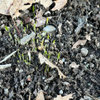A bizarre request
gregsamsa
11 years ago
Related Stories

ARCHITECTUREHow to Design a Storybook Cottage
A client’s request: “Build me a house where Disney meets Tudor.” The architect explores the details that make the style
Full Story
BATHROOM DESIGNRoom of the Day: Sealed With a Kiss
A San Francisco girl’s bathroom room goes lip-smackingly bold
Full Story
FUN HOUZZ31 True Tales of Remodeling Gone Wild
Drugs, sex, excess — the home design industry is rife with stories that will blow your mind, or at least leave you scratching your head
Full Story
HOUZZ TOURSHouzz Tour: A Self-Sufficient Farmhouse With a Sheep-Pasture Roof
LEED Platinum certification and a soil-covered top make this pastoral Virginia home green in more ways than one
Full Story
REMODELING GUIDESHow to Hire a Contractor
Follow these 8 steps to find the right contractor for you and your project
Full Story
LIVING ROOMSNew This Week: Airy Modern Living Rooms That Seat 7
These seating options can handle a crowd without overcrowding the space
Full Story
HOMES AROUND THE WORLDHousehold Habits and Customs to Borrow From Other Countries
Discover why salt may be the perfect house-warming gift, how to clean rugs in snow and why you should invest in a pair of ‘toilet slippers’
Full Story
REMODELING GUIDESWhy Marble Might Be Wrong for Your Bathroom
You love its beauty and instant high-quality appeal, but bathroom marble has its drawbacks. Here's what to know before you buy
Full Story
TASTEMAKERSTake a Behind-the-Scenes Tour of Netflix’s ‘Grace and Frankie’
Set decorator Beauchamp Fontaine explains the design decisions behind the home sets featured in the new Netflix series
Full Story
SMALL SPACESDownsizing Help: Where to Put Your Overnight Guests
Lack of space needn’t mean lack of visitors, thanks to sleep sofas, trundle beds and imaginative sleeping options
Full StoryMore Discussions







NHBabs z4b-5a NH
claireplymouth z6b coastal MA
Related Professionals
North New Hyde Park Landscape Architects & Landscape Designers · Roosevelt Landscape Architects & Landscape Designers · Salem Landscape Architects & Landscape Designers · San Juan Landscape Architects & Landscape Designers · Forest City Landscape Architects & Landscape Designers · Amesbury Landscape Contractors · Canby Landscape Contractors · Fishers Landscape Contractors · Marlborough Landscape Contractors · Thornton Landscape Contractors · Vineyard Landscape Contractors · Waldorf Landscape Contractors · Braintree Decks, Patios & Outdoor Enclosures · Fort Lee Decks, Patios & Outdoor Enclosures · Pittsburgh Decks, Patios & Outdoor Enclosuresgardenweed_z6a
pixie_lou
diggerdee zone 6 CT
Marie Tulin
spedigrees z4VT
spedigrees z4VT
gregsamsaOriginal Author
gardenweed_z6a
hunt4carl
spedigrees z4VT
bill_ri_z6b
molie
hunt4carl
corunum z6 CT
gregsamsaOriginal Author
NHBabs z4b-5a NH
NHBabs z4b-5a NH
spedigrees z4VT
gregsamsaOriginal Author
gregsamsaOriginal Author